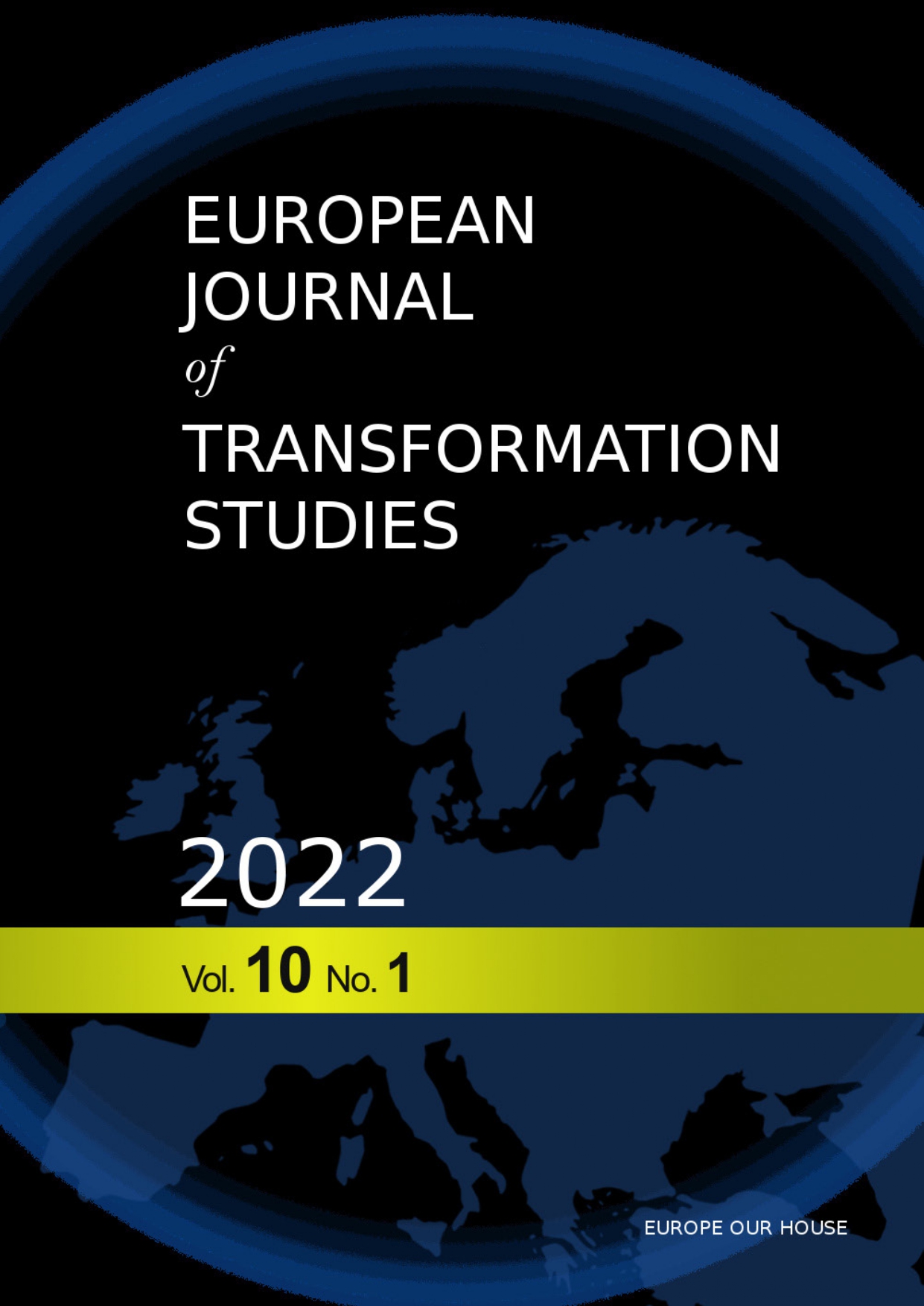Sustainable-responsible tourism values and crisis management: issues and critical reflection
Słowa kluczowe:
Psustainable-Responsible Tourism, Sustainomics, Crisis ManagementAbstrakt
In recent years, the world has undergone major changes in terms of economic, technologic, and touristic development. With the constant emergence of crisis situations, it is evident now more than ever that these changes need to be addressed and tackled with in a way that would ensure long-term stability and prosperity. As a result, the concept of sustainable-responsible tourism has emerged, which, among other things, addresses many important and complex issues, such as mass tourism, natural and social heritage preservation, environmental change, global warming, pollution, etc. SRT values also refer to a responsible and sustainable approach to crisis management, which is the topic of this paper. In order to keep up with the constant changes and establish a healthy tourism development that would be in line with ethical and responsible behaviour, an experienced and qualified destination management is of great importance. Sustainable-responsible tourism should therefore not only be considered a new trend in the tourism industry, but also a new norm.
The methodology used in this paper consists of an analysis of secondary data sources such as academic articles, documents, and reports relevant to the topic of the paper, all written in the period between 2004 and 2021. The purpose of using this methodology is not only to highlight the transfer and dissemination of knowledge about tourism with the goal of adding to the already existing knowledge. By focusing on both academic articles and practical reports of work experiences, as well as official documents, this paper also aims to promote critical thinking about the already existing knowledge. The ultimate goal of the paper is to promote the creation of knowledge in designing sustainable tourism development strategies, agendas, and monitoring the implementation process of sustainable development in tourism.
Downloads
Bibliografia
Bundy, J., Pfarrer, M. D., Short, C. E. & Timothy Coombs, W. (2017). Crises and Crisis Management: Integration, Interpretation, and Research Development. Journal of Management, Vol. 43 No. 6, pp. 1661 – 1692.
Conaghan, A., Hanrahan, J. & McLoughlin, E. (2015). The sustainable management of a tourism destination in Ireland: a focus on county clare, Advances in Hospitality and Tourism Research (AHTR), 3 (1), pp. 62-87.
De Sausmarez, N. (2007). Crisis Management, Tourism and Sustainability: The Role of Indicators. Journal of Sustainable Tourism, 15 (6), pp. 700 -714.
Fabry, N. & Zeghni, S. (2019). Resilience, tourist destinations and governance: an analytical framework https://www.researchgate.net/publication/331832424_Resilience_tourist_destinations_and_governance_an_analytical_framework.
Fischbacher-Smith, D. & Fischbacher-Smith, M. (2016). Crisis management as a critical perspective. Journal of Management Development, Vol. 35, No. 7, pp. 930 – 940.
Forbes Councils (2020). This Expert Is Shifting The Crisis Management Paradigm When Leaders Need It Most https://www.forbes.com/sites/forbesmarketplace/2020/07/27/thisexpert-is-shifting-the-crisis-management-paradigm-when-leaders-need-it-most/?sh=709fe7b34e78.
Genç, R. (2014). Sustainable Strategies for Destination Management. Acta Universitatis Danubius. Œconomica, 10 (3) http://journals.univ-danubius.ro/index.php/oeconomica/article/view/2436/2695.
Guerreiro, M. (2019). Sustainable destination management: a commitment for the future of world tourism. Worldwide Hospitality and Tourism Themes, Vol. 11, No. 6, pp. 685-691.
Jensen Hughes (2013). The critical response time of crisis management planning https:// www.jensenhughes.com/insights/the-critical-response-time-of-crisis-management-planning.
Kravaršćan, K. (2020). Upravljanje krizama u turističkom sektoru u Hrvatskoj, Sveučilište u Zagrebu Klarin, T., Krce Miočić, B. & Razović, M. (2016). Management of sustainable tourism destination through stakeholder cooperation. Management: Journal of Contemporary Management Issues, Vol. 21 No. 2, pp. 99 – 120.
Lalonde, C. (2014). Changing the Paradigm of Crisis Management: How to Put OD in the Process https://www.researchgate.net/publication/253760447_Changing_the_Paradigm_of_ Crisis_Management_How_to_Put_OD_in_the_Process.
Leigh, M. (2016). Critical Thinking in Crisis Management. Emergency Planning College Occasional Papers, No. 15 https://www.alnap.org/system/files/content/resource/files/main/ Occ15-Paper-AUG-2016.pdf.
Levy, D. (2020). Resilience in tourism: Learning from crisis management experiences https:// blogs.iadb.org/sostenibilidad/en/resilience-in-tourism-learning-from-crisis-management-experiences/.
Marker, A. (2020). Models and theories to improve crisis management https://www.smartsheet.com/content/crisis-management-model-theories.
Mihalic, T. (2016). Sustainable-responsible tourism discourse – Towards ‘responsustable’ tourism. Journal of Cleaner Production, 111, Part B, pp. 461- 470.
Mihalic, T. (in print 2021). Sustainomics in Tourism: ecological, economic and political sustainability issues. Ljubljana: Ekonomska fakulteta, Univerza v Ljubljani https://publizr.com/ seblu/eet-sustainomics-in-tour-02022021-final?html=true#/170/.
OECD (2021). Managing Tourism Development for Sustainable and Inclusive Recovery http:// www.iztzg.hr/files/file/RAZNO/Managing-tourism-developmen-for-sustainable-and-inclusive-recovery.pdf.
Sedaghat, M. et al. (2015). Sustainable tourism: a comprehensive literature review on frameworks and applications. Economic Research-Ekonomska Istraživanja, 28 (1), pp. 1-30.
Serra Gorpe, T. & Zamoum, K. (2018). Crisis Management: A Historical and Conceptual Approach for a Better Understanding of Today’s Crises https://www.intechopen.com/chapters/60813.
Su, L., & Swanson, S. R. (2017). The effect of destination social responsibility on tourist environmentally responsible behavior: Compared analysis of first-time and repeat tourists. Tourism Management, 60, pp. 308–321.
TSG. (2012). European Charter for Sustainable and Responsible Tourism. Tourism Sustainability Group; European Commission: Brussels, Belgium.
Unforgettable Nature Experiences. Destination: Wildlife, Responsible Tourism in Destinations Shaping sustainable spaces into better places https://www.destinationwildlife.com/responsible-tourism.
Welford, R., & Ytterhus, B. (2004). Sustainable development and tourism destination management: A case study of the Lillehammer region, Norway. International Journal of Sustainable Development & World Ecology, 11 (4), pp. 410–422.

 Uniwersyteckie Czasopisma Naukowe
Uniwersyteckie Czasopisma Naukowe



